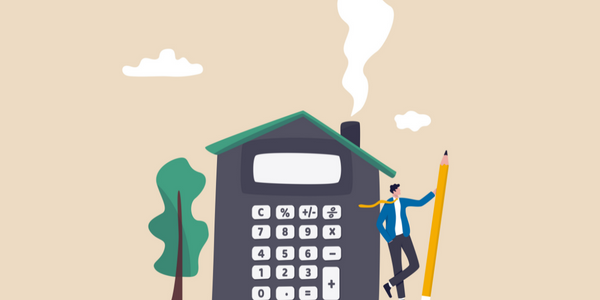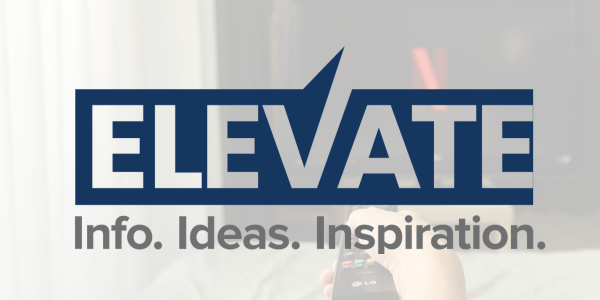
With all the specialized loan programs out there—FHA, VA, etc.—it’s easy for the standard, conventional loan to get lost in the shuffle. After sifting through all these programs, you may find yourself stepping back and asking, “Wait, just what is a conventional loan?”
The word “conventional” simply means the loan is not part of a specific government program like FHA and VA loans are. Instead, they’re offered by mortgage companies, banks, and credit unions. Conventional loans that follow specific guidelines set by Fannie Mae and Freddie Mac—two federally backed companies that buy and guarantee mortgages—are known as conforming loans.

Conventional mortgages that don’t meet Freddie and Fannie’s guidelines are called non-conforming loans. An example of a non-conforming loan would be a jumbo loan, as it exceeds the conforming loan limits.
Now, let’s get into the details of what a conventional loan is.
Down Payments
Down payments on conventional loans can be as low as 3% if you’re a first-time homebuyer. This is a huge perk compared to other mortgages that require 10% to 20% down. The down payment requirement for a conventional loan tends to vary based on your financial situation and whether this is your first home.
If you’re not a first-time homebuyer, or if you make less than 80% of your area’s median income, your down payment requirement will likely be 5%. If you’re buying a second home, this rate may be 10%. Those who opt for an adjustable-rate mortgage (ARM) over a fixed rate will also typically find that their rate is 5%.
Those hoping to secure a jumbo loan can do that through a conventional mortgage, though the down payment requirement may be 20% or higher.
Private Mortgage Insurance (PMI)
Here’s the thing with putting less than 20% down on a home with a conventional loan: You’ll likely have to pay private mortgage insurance as part of your mortgage payment. It’s the lender’s way of protecting itself in case of a default since there isn’t a lot of skin in the game with a low down payment.
PMI can be rolled into your monthly mortgage payment, or it can be paid as an upfront fee. Depending on your credit score and down payment size, you’ll usually pay between $40 and $80 per month for every $100,000 you borrowed. The good news about PMI is that it automatically falls off once you’ve accumulated a 22% equity stake in your home. This is a direct benefit of conventional loans, since PMI on FHA loans remains for the life of the loan.
Loan Size
For a conforming loan, you need to stay within the loan limits set by Freddie and Fannie. Though this number changes every year, it is $548,250 in 2021, up from $510,400 in 2020. If your loan falls outside this range, it is considered non-conforming and would qualify as a jumbo loan.
The loan limit is higher if your county is designated as a “high-cost area.” In those instances, the conforming loan limit can go as high as $822,375 in 2021. You can check out the conforming loan limits in your area by visiting the Federal Housing Finance Agency’s website.
Other Requirements
When thinking about whether a conventional loan is right for you, you’ll want to take two more factors into consideration.
- Credit score: Most lenders require a credit score of at least 620 for a conventional loan.
- Debt-to-income ratio (DTI): A DTI of 50% or lower is needed for most conventional loans.
Aside from these two factors, individuals who have filed for bankruptcy or had a foreclosure within the past seven years may not qualify for a conventional loan. If you don’t meet the requirements for a conventional loan, never fear! Our APM Loan Advisors have hundreds of loan programs at their fingertips and are always ready to discuss your unique financial situation. We can help determine whether a conventional loan is right for you, or if another lending vehicle may be a better fit.
Is a Conventional Loan Right for You?
The beauty of the conventional loan is its diversity. You can choose between a fixed rate or ARM. You can pay as little as 3% down. You can use a conventional loan to purchase a second home or investment property. You can avoid PMI by putting 20% down—or potentially have it removed once you build up 22% equity in your home.
Conforming and non-conforming conventional loans are among a number of products APM offers to borrowers. Now that you know what a conventional loan is, you can start to weigh whether it’s the right type of mortgage for you. Our Loan Advisors are here to counsel you through the process. We listen to your financial situation, goals, and concerns, and then map out a plan that helps you achieve your dreams faster.
APM can also get you started on your pre-approval journey if you want to improve your credit report and/or debt-to-income ratio before applying for a home loan. Whatever your needs, we’re here to help. Give us a call today at 916-960-1325 or find a Loan Advisor here.







